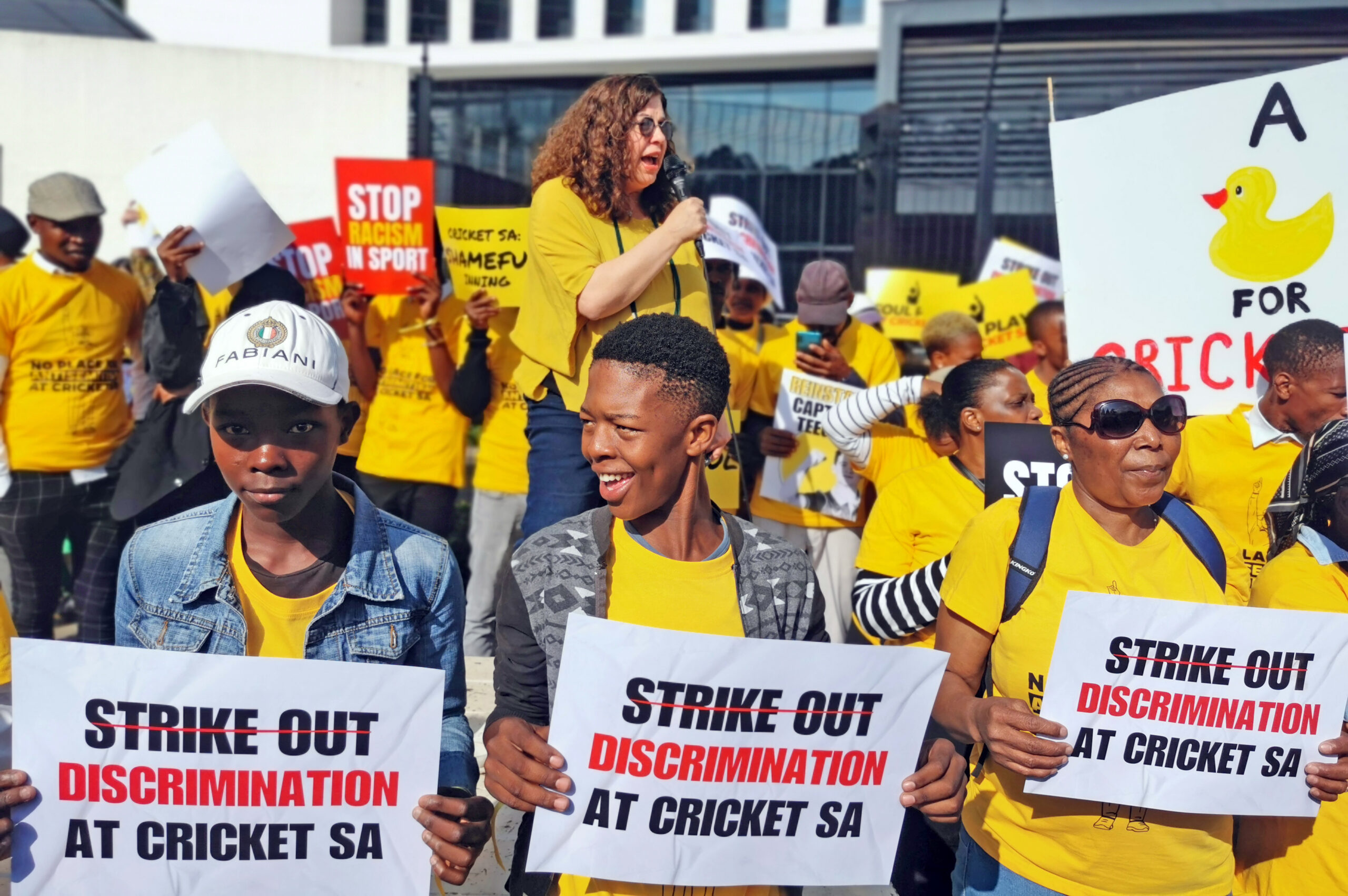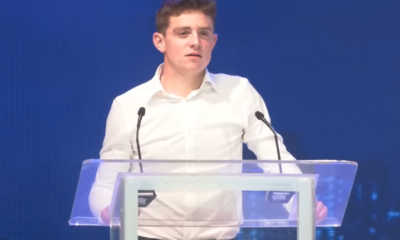
News

US antisemitism envoy: ‘Teeger decision is antisemitic’
United States antisemitism envoy and ambassador Deborah Lipstadt has confirmed that the 12 January decision by Cricket South Africa (CSA) to strip Under-19 (U19) Jewish cricketer David Teeger of his captaincy is antisemitic. Lipstadt, a pre-eminent historian of antisemitism, wrote on X on 19 January that, “When a Jew outside of Israel is held responsible for Israel’s policies, this is antisemitism.”
CSA attributed its decision to “security concerns” ahead of the U19 Men’s Cricket World Cup, which South Africa is hosting, but Lipstadt rejected that rationale. “‘Security concerns’ should be addressed by tightening security, not by punishing the object of the threat,” she wrote.
Meanwhile, the Democratic Alliance (DA) has now taken the matter to the South African Human Rights Commission (SAHRC).
Also on 19 January, South Africa’s Sports, Arts, and Culture Minister Zizi Kodwa, said the African National Congress (ANC) government had nothing to do with the decision to strip Teeger of his captaincy. In an interview with eNCA, he said, “Maybe people want to bring some external political issues to sport, [but] we want to opt out of that. Who becomes captain has got nothing to do with the minister. [The current captain of South African cricket team, Temba] Bavuma has been changed so many times as captain. To date, nobody knows the reason, because that’s a sporting decision. Nobody from Cape Town, where he comes from, stood up and said, ‘because he represents us, we think it’s unfair’. Sport must be a tool for building bridges of peace.”
However, multiple media outlets reported that CSA asked Teeger to relinquish the captaincy voluntarily after Kodwa addressed the team and appeared to talk about Teeger without naming him.
The DA gave CSA until 19 January to reinstate Teeger before taking the matter to the SAHRC. “The DA firmly maintains that this is a violation of Teeger’s rights and a breach of the principles enshrined in the Constitution’s Bill of Rights,” says Veronica van Dyk, DA Shadow Minister of Sport, Arts, and Culture. “The party reiterates its call for the International Cricket Council to investigate any potential political interference by the ANC government in international cricket.” Van Dyk told the SA Jewish Report that the party would submit its complaint to the SAHRC shortly.
Advocate Mark Oppenheimer, who has appeared in the Supreme Court of Appeal and the Constitutional Court in cases that seek to determine the boundary between freedom of expression and genuine hate speech, says he believes CSA’s decision was antisemitic.
“To my mind, there ought to be a two-step process,” he says. “The first is to approach an urgent court so that Teeger’s captaincy is restored. The second would be to review the decision made by CSA and have it set aside. The SAHRC may take some time to render a decision, and that may make it difficult in the narrow circumstances of this tournament for justice to be achieved.”
He believes South African Jewry “should be concerned for the future. The ANC government has made it clear that Jews are to be treated as second-class citizens, and that its allies are Hamas and Iran.”
CSA’s decision is already having far-reaching implications. SA CricketMag and Rapport newspaper reported on 21 January that online gambling conglomerate Betway, which is the title sponsor of the SA20 tournament, is unhappy with CSA’s decision. “CSA is seriously alienating sponsors and prospective sponsors,” a highly placed source told Rapport newspaper.
According to various sources, Betway representatives conveyed their dissatisfaction to CSA administrators, and that the chances of Betway sponsoring CSA tournaments or series – apart from the SA20 – are slim. The Australian Financial Review reports that Betway is owned by South African Jewish philanthropist Martin Moshal.
However, SA CricketMag also points out that “Betway’s sponsorship deal with CSA ended on 8 January, four days prior to the captaincy decision, and therefore had nothing to do with the controversy.”
Free Speech Union of South Africa (FSU SA) Director Sara Gon said in a statement that “According to Rapport, senior sources involved in making the threat assessment across the country said there was no information to suggest that the security threat would be greater if Teeger retained his position.
“FSU SA calls for the reversal of the decision and the resignation of Chief Executive [Lawson] Naidoo,” said Gon. “CSA must stand by its players, uphold their freedom of speech, and implement sufficient security.”
The CSA’s decision came just over a month after Teeger was cleared of breaching provisions of the codes of conduct of the CSA and the Central Gauteng Lions in an independent inquiry. The inquiry, conducted by advocate Wim Trengove, was sparked by the outcry surrounding Teeger’s Rising Star Award acceptance speech at the Absa Jewish Achiever Awards on 22 October, during which he dedicated his award to soldiers in Israel. Once cleared, Teeger was appointed South Africa’s U19 captain.
Political commentators haven’t minced their words in questioning CSA’s decision. On 19 January, advocate at the Johannesburg bar, Christiaan Bester, wrote in Business Day, “There’s little doubt that relieving Teeger of the captaincy is politically motivated. If there is indeed a security threat, the logical approach would be to improve security lest CSA allows itself to be intimidated by opportunists and thugs who have no place in our democracy.”
Bester wrote, “A form of punishment has been dished out because CSA didn’t agree with the [Trengove] outcome. We’re left with the distinct impression that the men in suits and their political masters consider it wholly unpalatable that a Jew should be allowed to captain a South African cricket team on the world stage.”
Writing for BizNews on 22 January, Terence Corrigan, project manager at the South African Institute of Race Relations said, “Pre-emptively capitulating to supposed demands to forestall violence that was supposedly in store communicates a very specific message: threats work. Threaten violence, and we’ll surrender in advance. This is the case, whether any threat was made or not.”
On 19 January, Teeger’s alma mater, King Edward VII School, announced that he had passed matric with seven distinctions. On the same day, Teeger, who was one of his school’s top five academic performers, took part in South Africa’s 31-run victory against the West Indies in Potchefstroom, and took one wicket during a two over bowling spell.
Teeger also contributed to the team’s decision-making as Juan James, the captain who replaced him, had to leave the field with an injury.
Protesters held a prayer gathering and protest during the game. That protest followed a protest by the South African Jewish Board of Deputies and others outside CSA’s offices in Melrose Estate on 17 January. At that protest, the South African Zionist Federation handed over a petition with more than 50 000 signatures demanding immediate reinstatement of Teeger’s role as captain, as well as a formal apology.
Meanwhile, Ali Bacher, who oversaw South African cricket’s reintegration after apartheid, has asked CSA to disclose the security reports that influenced its decision, to provide a comprehensive explanation of the decision-making process, the specific factors that led to the removal of the captaincy, and clarification about whether any external pressure led to the decision.
“It’s the responsibility of CSA and South African law-enforcement entities to ensure safety at sporting events,” Bacher said. “The alternative is that the threat of violence dictates policy.”










